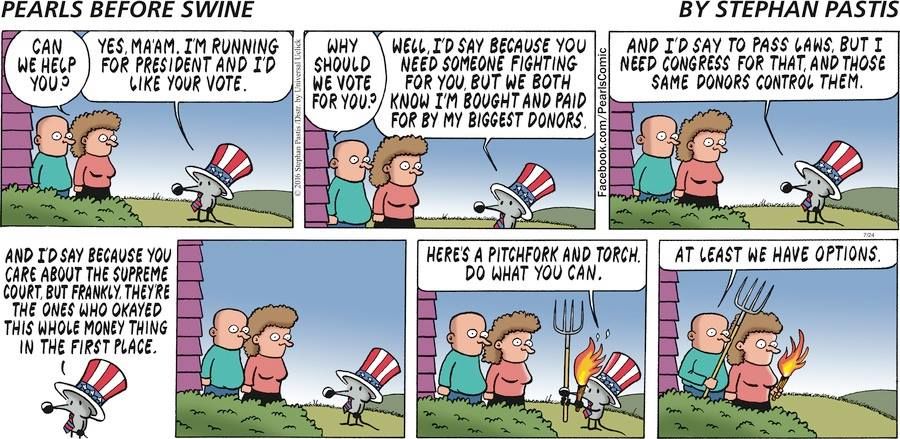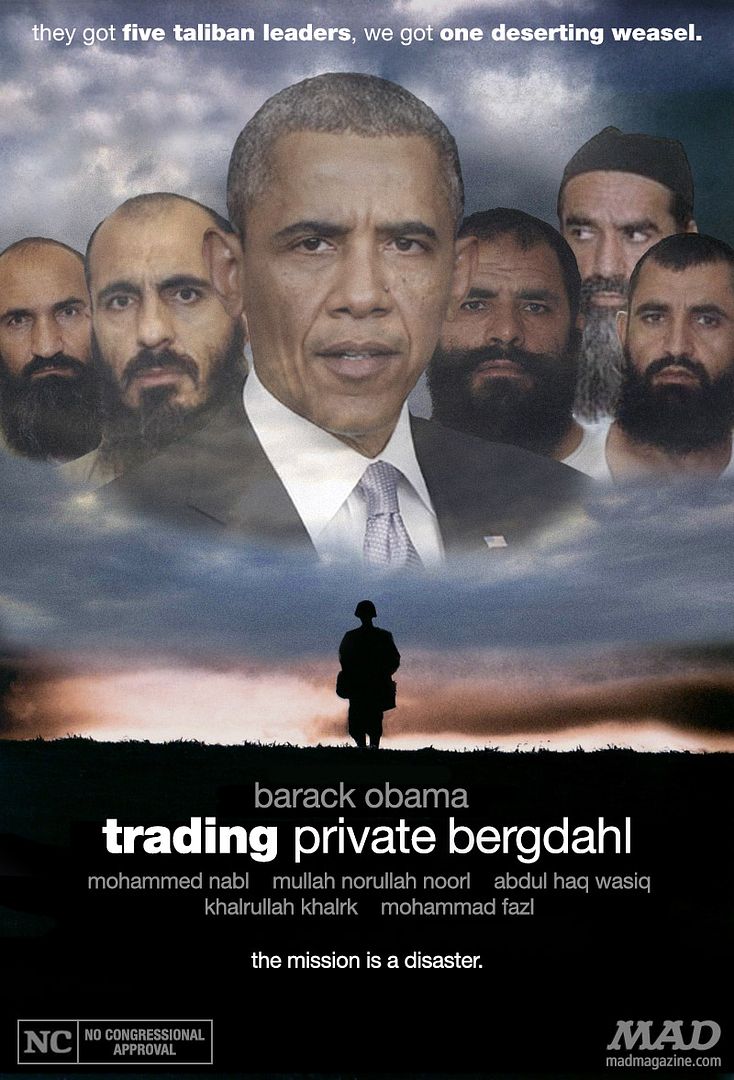This blog is now thirteen years old. I started TSM on Wednesday, May 14, 2003. I missed the blogiversary last year, and the year before that I put the blog in semi-retirement.
In preparation for this post, I went back and read some of those first pieces I wrote just to see what I had to say back then.
Nothing’s changed much, really.
In one early post I wrote:
I am who I am, I think, primarily because of reading. I feel pity for people who don’t or won’t or can’t read for pleasure. Short of a bodice-ripper, I don’t think there’s a book out there that can’t teach you something. (Oh, wait. Battlefield Earth…No, that taught me never to read L. Ron Hubbard again.) My primary influence was Science Fiction. At about 12, I discovered The Science Fiction Hall of Fame, Vol. I, and I was never the same kid again. I went for SF, and I found Robert Anson Heinlein.
Exposing a pre-pubescent to R.A. Heinlein is a dangerous thing. Especially when you set him up with things like Have Spacesuit, Will Travel, and The Menace From Earth, and then you hit him between the eyes with Starship Troopers and The Moon is a Harsh Mistress. And then follow those with Stranger in a Strange Land and Time Enough for Love. Anything that man wrote, I read. Even his crap was better than most people’s best work.
But I also read Asimov, Clarke, Poul Anderson, Theodore Sturgeon, Robert Silverberg, James Blish, Jerry Pournelle, Larry Niven, Ben Bova, Alan Dean Foster, Piers Anthony… Many more. It’s called “speculative fiction” for a reason. It awoke, or at least encouraged, an interest in how things work – from cars to guns to computers to governments. But Heinlein’s responsible for my politics. I found Henry Louis Mencken and P.J. O’Rourke much later. By then the foundation had set.
I’m not a Libertarian, though. Nor am I a Republican or a Democrat (though that’s what my voter registration says – I like screwing with their primaries.) I’m sure as hell not a Green. I don’t “affiliate.” I figure that anyone willing to run for elective office should be immediately disqualified. At least, anyone willing to run for national office. I’ve forgotten who said it, but someone did: “Anyone who rises to the level of national politics is either a cutthroat or a useful idiot.” Or both. The ones that are both are the really dangerous ones.
My politics and my personal philosophy are also based in the works of two other writers: John D. MacDonald, and Robert B. Parker. Their characters of Travis McGee and Spenser, which I read through my adolescence, resonated with my personal sense of rightness and honor, socially responsible independence: in short – morality.
Note that “school” was not mentioned in that excerpt. In an earlier post I pointed to an LA Dogtrainer Times piece (link now broken) about how a school valedictorian couldn’t write a research paper with a bibliography, so the “Collapsing Schools” theme dates back to the beginnings of the blog.
In an even earlier piece I said:
I am strongly interested in the rights of individuals, in particular the restrictions upon our government to respect those rights.
As such, I’m not much of a fan of the government we have. In fact, I used to use this signature line:
The Constitution may not be the finest work ever set to paper,
but it beats whatever the government’s using these days.
So it comes as no surprise that I’m not real enamored with the Republicans, and I find the Democrats abhorrent. Of course, I think the Greens are flakes, and the Libertarians tend to be flakes of a different shape.
My opinion of the Republican party has declined precipitously over the last thirteen years. As has my opinion of the Democrat party.
And here we are.
In October of 2003 I wrote Not with a Bang, but a Whimper? decrying other bloggers abandoning the ideological field. Toren Smith of The Safety Valve was quoted:
After thinking it over for a while, I think The Safety Valve has run its course. Frankly, I’m tired of getting all bent out of shape about the stupidities of the world, which seem to be getting worse and worse as time goes by. The last few months it seems every day brings worse news about the corruption of science, the destruction of society by PC-think, the complete and utter end of rational political discourse, and the hydra-like expansion of government powers. International politics has gone insane. California is heading into the socialist shit pit, and most of the US seems poised to follow sooner or later. I may escape temporarily to someplace like Texas, but sooner or later I’ll probably have to head for Belize or the Caymans.
—
To hell with rubbing my face in all the downer crap that’s out there. Yes, I know–even if you don’t go looking for politics, politics will come looking for you. But I’m going to try crossing the street, at least for the time being. And if necessary I’ll shoot the bastard with my carry piece. And in the meantime I’ll let my friends like Kim and James and the rest of the gang off to the right in my blog links “gaze into the abyss.”
They’re clearly tougher than I am.
It took me eleven years, but I got there, too. I just didn’t (completely) quit.
I have concluded that the problem isn’t the government, though. Quoting Pogo, “We have met the enemy and he is us.” THAT I blame on the government.
Packing thirteen years of blogging into a few paragraphs (using words that mostly aren’t mine, naturally – I’m nothing if not consistent) I’d like to state my case one more time for the record.
Educator John Taylor Gatto studied the history of American public education after he got out of teaching in the the New York City school system. In his book The Underground History of American Education he noted:
At the start of WWII millions of men showed up at registration offices to take low-level academic tests before being inducted. The years of maximum mobilization were 1942 to 1944; the fighting force had been mostly schooled in the 1930s, both those inducted and those turned away. Of the 18 million men were tested, 17,280,000 of them were judged to have the minimum competence in reading required to be a soldier, a 96 percent literacy rate. Although this was a 2 percent fall-off from the 98 percent rate among voluntary military applicants ten years earlier, the dip was so small it didn’t worry anybody.
WWII was over in 1945. Six years later another war began in Korea. Several million men were tested for military service but this time 600,000 were rejected. Literacy in the draft pool had dropped to 81 percent, even though all that was needed to classify a soldier as literate was fourth-grade reading proficiency. In the few short years from the beginning of WWII to Korea, a terrifying problem of adult illiteracy had appeared. The Korean War group received most of its schooling in the 1940s, and it had more years in school with more professionally trained personnel and more scientifically selected textbooks than the WWII men, yet it could not read, write, count, speak, or think as well as the earlier, less-schooled contingent.
A third American war began in the mid-1960s. By its end in 1973 the number of men found noninductible by reason of inability to read safety instructions, interpret road signs, decipher orders, and so on—in other words, the number found illiterate—had reached 27 percent of the total pool. Vietnam-era young men had been schooled in the 1950s and the 1960s—much better schooled than either of the two earlier groups—but the 4 percent illiteracy of 1941 which had transmuted into the 19 percent illiteracy of 1952 had now had grown into the 27 percent illiteracy of 1970. Not only had the fraction of competent readers dropped to 73 percent but a substantial chunk of even those were only barely adequate; they could not keep abreast of developments by reading a newspaper, they could not read for pleasure, they could not sustain a thought or an argument, they could not write well enough to manage their own affairs without assistance.
Consider how much more compelling this steady progression of intellectual blindness is when we track it through army admissions tests rather than college admissions scores and standardized reading tests, which inflate apparent proficiency by frequently changing the way the tests are scored.
—
Back in 1952 the Army quietly began hiring hundreds of psychologists to find out how 600,000 high school graduates had successfully faked illiteracy. Regna Wood sums up the episode this way:
After the psychologists told the officers that the graduates weren’t faking, Defense Department administrators knew that something terrible had happened in grade school reading instruction. And they knew it had started in the thirties. Why they remained silent, no one knows. The switch back to reading instruction that worked for everyone should have been made then. But it wasn’t.
In 1882, fifth graders read these authors in their Appleton School Reader: William Shakespeare, Henry Thoreau, George Washington, Sir Walter Scott, Mark Twain, Benjamin Franklin, Oliver Wendell Holmes, John Bunyan, Daniel Webster, Samuel Johnson, Lewis Carroll, Thomas Jefferson, Ralph Waldo Emerson, and others like them. In 1995, a student teacher of fifth graders in Minneapolis wrote to the local newspaper, “I was told children are not to be expected to spell the following words correctly: back, big, call, came, can, day, did, dog, down, get, good, have, he, home, if, in, is, it, like, little, man, morning, mother, my, night, off, out, over, people, play, ran, said, saw, she, some, soon, their, them, there, time, two, too, up, us, very, water, we, went, where, when, will, would, etc. Is this nuts?”
Yes, it is. And no one did anything to correct it. What has the result been? A Daily Mail article Thursday covers the publishing of a vanity-press book ostensibly written by a Democrat Congressman. Here’s the part I find pertinent:
‘Voters claim they want substance and detailed position papers, but what they really crave are cutesy cat videos, celebrity gossip, top 10 lists, reality TV shows, tabloid tripe, and the next f***ing Twitter message,’ the congressman gripes in the book.
‘I worry about our country’s future when critical issues take a backseat to the inane utterings of illiterate athletes and celebrity twits.’
The product of 100+ years of public schooling, with the accelerating aid of the Department of Education (established in 1979 under the Carter administration) has brought us to this point where significantly less than half the population of the country understands the system of government or economics they live under. Or is even interested in understanding them. I’ve quoted from the 1983 report A Nation at Risk before, too. It’s author had this to say in the preface:
Our Nation is at risk. Our once unchallenged preeminence in commerce, industry, science, and technological innovation is being overtaken by competitors throughout the world. This report is concerned with only one of the many causes and dimensions of the problem, but it is the one that undergirds American prosperity, security, and civility. We report to the American people that while we can take justifiable pride in what our schools and colleges have historically accomplished and contributed to the United States and the well-being of its people, the educational foundations of our society are presently being eroded by a rising tide of mediocrity that threatens our very future as a Nation and a people. What was unimaginable a generation ago has begun to occur–others are matching and surpassing our educational attainments.
If an unfriendly foreign power had attempted to impose on America the mediocre educational performance that exists today, we might well have viewed it as an act of war. As it stands, we have allowed this to happen to ourselves. We have even squandered the gains in student achievement made in the wake of the Sputnik challenge. Moreover, we have dismantled essential support systems which helped make those gains possible. We have, in effect, been committing an act of unthinking, unilateral educational disarmament.
I’m convinced this was intentional. As the anonymous Congressman states:
‘Voters are incredibly ignorant and know little about our form of government and how it works,’ the anonymous writer claims.
‘It’s far easier than you think to manipulate a nation of naive, self-absorbed sheep who crave instant gratification.’
Yes, it is. Which is how Donald Trump ended up the presumptive Republican Presidential nominee this year.
Across the Pond, it’s no better.
In 2004’s Those Without Swords Can Still Die Upon Them, I quoted Steven Den Beste:
In my opinion, the four most important inventions in human history are spoken language, writing, movable type printing and digital electronic information processing (computers and networks). Each represented a massive improvement in our ability to distribute information and to preserve it for later use, and this is the foundation of all other human knowledge activities. There are many other inventions which can be cited as being important (agriculture, boats, metal, money, ceramic pottery, postmodernist literary theory) but those have less pervasive overall affects.
I agree with that, but I went further:
I believe that there are three things crucial to the rise of individual freedom: The ability to reason, the free exchange of ideas, and the ability to defend one’s person and property. The ability to reason and the free exchange of ideas will lead to the concept of individual liberty, but it requires the individual ability to defend one’s person and property to protect that liberty. The ability to reason exists, to some extent, in all people. (The severely mentally retarded and those who have suffered significant permanent brain injury are not, and in truth can never be truly “free” as they will be significantly dependent on others for their care and protection.) The free exchange of ideas is greatly dependent on the technologies of communication. The ability to defend your person and property – the ability to defend your right to your own life – is dependent on the technologies of individual force.
—
Individual, private possession of firearms isn’t the only thing that permits individual liberty, but it is one of the essential components in a society that intends to stay free. An armed, informed, reasoning people cannot be subjugated.
So what do you do if you want to fetter a free people?
1) Remove their ability to reason.
2) Constrain their ability to access and exchange information.
3) Relieve them of the means with which to defend themselves and their property.
Which of these seems easiest, and how would it be best accomplished? And best resisted?
But I concluded this year that I was wrong. Our ability to reason was destroyed, rendering the other two requirements moot. From a tactical standpoint, this is known as exploiting a single point of failure.
How was this accomplished? Philosophy.
I’ve quoted Ayn Rand from her 1974 speech to West Point graduates, Philosphy, Who Needs It? on a number of occasions. Once more:
You have no choice about the necessity to integrate your observations, your experiences, your knowledge into abstract ideas, i.e., into principle. Your only choice is whether these principles are true or false, whether they represent your conscious, rational convictions – or a grab-bag of notions snatched at random, whose sources, validity, context and consequences you do not know, notions which, more often than not, you would drop like a hot potato if you knew.
As a human being, you have no choice about the fact that you need a philosophy. Your only choice is whether you define your philosophy by a conscious, rational, disciplined process of thought and scrupulously logical deliberation – or let your subconscious accumulate a junk heap of unwarranted conclusions, false generalizations, undefined contradictions, undigested slogans, unidentified wishes, doubts and fears, thrown together by chance, but integrated by your subconscious into a kind of mongrel philosophy and fused into a single, solid weight: self doubt, like a ball and chain in the place where your mind’s wings should have grown.
Your subconscious is like a computer – more complex a computer than men can build – and its main function is the integration of your ideas. Who programs it? Your conscious mind. If you default, if you don’t reach any firm convictions, your subconscious is programmed by chance – and you deliver yourself into the power of ideas you do not know you have accepted.
I have discussed on a number of occasions (there’s links in the left sidebar to some of them) the difference between the philosophy of John Locke – responsible for the success of the American Revolution – and the philosophy of Jean-Jacques Rousseau – responsible for the disastrous French Revolution and all the horrors of socialism that followed. But as reader Oren Litwin noted in a comment long ago, now lost when Haloscan went away, but archived here in a couple of places:
If the non-socialist end of the political spectrum cannot create a political philosophy that is both good theory and emotionally appealing, we’re doomed.
Any political philosophy that is not self-reinforcing is by definition not the best political philosophy. Libertarianism (with a small “l”) features a stoic acceptance of individual risk (i.e. the lack of government intervention) for the sake of long-term freedom and prosperity–yet takes no measures to ensure that the society educates its young to maintain that acceptance of risk. The equilibrium, if it ever exists in the first place, is unstable and will collapse.
This aside from the fact that libertarianism is emotionally cold and unfulfilling to most people, who have not trained themselves to consider lack of outside restraint to be worth cherishing.
Rousseau’s philosophy has the advantage of being beautiful in theory, and attractive to human nature, as illustrated by this cartoon I recently discovered:

And 100+ years of public education has resulted in this electorate:

We didn’t use to be like this. Dinesh D’Souza wrote in his book What’s So Great About America:
In America your destiny is not prescribed; it is constructed. Your life is like a blank sheet of paper and you are the artist. This notion of being the architect of your own destiny is the incredibly powerful idea that is behind the worldwide appeal of America. Young people especially find the prospect of authoring their own lives irresistible. The immigrant discovers that America permits him to break free of the constraints that have held him captive, so that the future becomes a landscape of his own choosing.
If there is a single phrase that captures this, it is “the pursuit of happiness.” As writer V. S. Naipaul notes, “much is contained” in that simple phrase: “the idea of the individual, responsibility, choice, the life of the intellect, the idea of vocation, perfectibility, and achievement. It is an immense human idea. It cannot be reduced to a fixed system. It cannot generate fanaticism. But it is known [around the world] to exist; and because of that, other more rigid systems in the end blow away.”
This was more recently echoed by immigrant Craig Ferguson in the opening to his book, American on Purpose: The Improbable Adventures of an Unlikely Patriot:
One of the greatest moments in American sports history was provided by Bobby Thomson, the “Staten Island Scot.” Born in my hometown of Glasgow, Scotland, in 1923, he hit the shot heard round the world that won the Giants the National League pennant in 1951. Had Bobby stayed in Glasgow he would never have played baseball, he would never have faced the fearsome Brooklyn Dodgers pitcher Ralph Branca in that championship game, and he would never have learned that if you can hit the ball three times out of ten you’ll make it to the Hall of Fame.
Today I watch my son at Little League games, his freckled Scottish face squinting in the California sunshine, the bat held high on his shoulder, waiting for the moment, and I rejoice that he loves this most American game. He will know from an early age that failure is not disgrace. It’s just a pitch that you missed, and you’d better get ready for the next one. The next one might be the shot heard round the world. My son and I are Americans, we prepare for glory by failing until we don’t.
But in 2012 Aaron Sorkin in his HBO television series The Newsroom hit a nerve around the internet with a speech on why America isn’t the greatest nation in the world. Embedding no longer allowed, but by all means, please watch the whole thing. And listen carefully at the end when McAvoy concludes:
We were able to be all these things and do all these things because we were informed by great men. Men who were revered.
Men like Huntley and Brinkley, Edward R. Murrow, Eric Sevareid and Walter Cronkite. But the media is part and parcel of the problem as well, because its acolytes are immersed in the same philosophy Rousseau espoused, and it’s not the one of failing until you succeed. No, as illustrated by Professor Brian Anse Patrick in his book The National Rifle Association and the Media: The Motivating Force of Negative Coverage, members of the media see government as the Church of State, and they are its clergy – handing down to the laypeople only those truths they believe we should have. And that same philosophy moved through the colleges of education producing the teachers and administrators that gave us the electorate we have today, that has apparently selected Hillary Clinton and Donald Trump as our choices for the next President of the United States. That actually gave Bernie Sanders, a socialist, a pretty good shot at the brass ring.
All because we’ve never been taught what government really is – a necessary evil, best kept small and watched closely. Those of us who understand that have learned it strictly on our own, and we are vastly outnumbered. People think we live in “a nation of laws.” Iowahawk in his inimitable way illustrated the problem with that thinking this morning:
 We have a myriad of laws, each selectively enforced, but never applied to those in power. Want to wash someone’s hair for pay in New Hampshire, Tennessee, Alabama, Louisiana, or Texas? Be prepared to go to school first or at a minimum pay a license fee. This is known as “freedom.”
We have a myriad of laws, each selectively enforced, but never applied to those in power. Want to wash someone’s hair for pay in New Hampshire, Tennessee, Alabama, Louisiana, or Texas? Be prepared to go to school first or at a minimum pay a license fee. This is known as “freedom.”
In 2003 Reverend Donald Sensing wrote a piece, Bush Republicanism = Roosevelt Democratism? in which he said:
Because the present-day Republicans and Democrats are both big-government activists, they have a foundational philosophy that is the same:
America is a problem to be fixed, and Americans are a people to be managed.
—
A friend of mine emigrated here from Romania after Ceaucescu’s regime fell. He told me the other day that Americans are over-regulated. Think about that; a man coming from a communist country believes that Americans are over-regulated. It chills.
—
I predict that the Bush administration will be seen by freedom-wishing Americans a generation or two hence as the hinge on the cell door locking up our freedom. When my children are my age, they will not be free in any recognizably traditional American meaning of the word. I’d tell them to emigrate, but there’s nowhere left to go. I am left with nauseating near-conviction that I am a member of the last generation in the history of the world that is minimally truly free.
Five years later I asked him if his position had changed any. He replied:
Yes, most definitely it has. The demise of freedom in this country has accelerated even faster than I imagined back in 2003. With the unconstitutional power grab embodied in the “bailout” bill that passed last week, the federal government now controls the core of the American economy, the credit and investment markets. This is not one step short of a controlled economy, it is a controlled economy. The secretary kommissar of the treasury now has the permanent mandate to intervene and indeed take control of the markets in any way he sees fit, anytime he desires.
Surely no one is so naive as to think this power will be used only rarely and delicately as time goes on. Rather, the socio-economic engineering urges of future kommissars will be ever less restrained. Remember Steven den Beste’s dictum: “The job of bureaucrats is to regulate, and left to their own devices, they will try to regulate everything they can.” No one seeks or accepts high, powerful, federal office in order to do little.
The government also now controls the home mortgage and student loan industries. To mix in a pop-culture metaphor, the Federal government is now Negan, and we are boned. All it has to do is kill or imprison somebody once in a while to keep the rest of us in line, surrendering half our shit. Who gets into office is immaterial. The machine goes on until it eventually will collapse under the weight of its own corruption.
And when that happens our “austerity riots” will be SPECTACULAR.
So I’m pretty much done being outraged by it all. Check back from time to time. I may post cat memes.










